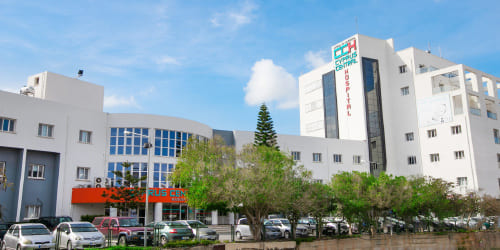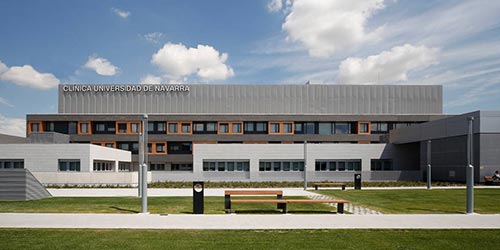1. The age of the mother |
2. Cause of infertility |
3. Oocytes and embryos |
4. Treatment protocols |
5. Other causes |
6. Where to go for IVF? |
IVF is a sensitive topic for any couple that struggles with fertility. On the one hand, the method offers the best chance of having a baby; but on the other hand, there is a risk that the costly procedures will not produce the desired results. Expectant parents weigh up the advantages and disadvantages carefully before deciding on treatment.
To provide our patients with a thorough understanding of all the factors that influence the success of IVF treatment we have decided to share the most current research findings of leading institutions.
Listen to the article:
What is the best age for IVF?
One of the factors that most affect the outcome of IVF is the age of the mother. From the age of 32-35, women start losing their oocyte reserve, which reduces the chance of a successful pregnancy. Studies by the Society for Assisted Reproductive Technology (SART) have shown that the most favourable age for in-vitro fertilisation is under 35. In 47 per cent of women in this age group, IVF has resulted in successful delivery. However, this does not mean that the younger a mother is, the better her chances are: statistics show that patients under 25 have the same success rate of IVF as those in the 30-35 category. This is due to lower fertility and fewer quality embryos.
In general, the statistics of IVF success depending on age are as follows:
| Maternal age | IVF success rate |
|---|---|
| under 35 years | 45-55,6% |
| 35-37 years | 38-40,8% |
| 38-40 years | 26,8-28% |
| 41-42 years | 12,6-16% |
| Over 42 years | 3,9-6% |
When dealing with patients with reduced ovarian reserve, doctors run tests to choose the correct hormonal protocol. They include FSH and oestradiol levels on day 3, the Clomid challenge test, inhibin B and AMH hormone levels, and the number of antral follicles at the beginning of the cycle.
If at least one of the tests above exceeds the normative values, it indicates that the woman’s body will be insensitive to the standard (long) IVF protocol and a more aggressive one should be used instead.
Patients over the age of 40 have an increased risk of miscarriage in addition to a reduced oocyte reserve. For this category of women, the prognosis for IVF is least favourable and they are more likely to need several cycles of treatment to obtain the desired result. In this case, alternative options should be kept in mind: the use of donor eggs or surrogacy.

MAKE AN APPOINTMENT WITH A FERTILITY DOCTOR
To get help for fertility problems, contact experienced foreign fertility centres. Please leave a request on our website by clicking the button below and we will help you find a clinic and organise your treatment.
Impact of the cause of infertility on IVF
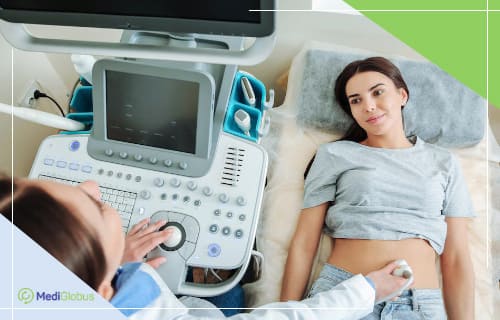
Many studies confirm the great influence of the cause of infertility on the potential effectiveness of IVF. Among all possible diagnoses, the worst prognosis is seen when fertility difficulties are due to male factors, endometriosis or fallopian tube disease. They cause an increased risk of poor fertilisation and stillbirths. Myomas or polyps of the uterine wall, although rarely causing infertility themselves, can cause miscarriage. Intrauterine adhesions are also a negative factor.
Reproductive medicine specialists who manage patients with such risks take steps to increase the effectiveness of IVF. In the case of male infertility, the most effective procedure is ICSI. The doctor personally selects the best quality sperm, which is then used to manually fertilise prepared eggs. Using this method almost doubles the chances of getting pregnant.
If the oviductal patency is compromised, the hydrosalpinx can be removed, which significantly increases the success of subsequent IVF. In cases where such surgery cannot be performed for safety reasons, proximal tubal ligation may be possible.
Sometimes a thin uterine endometrium (less than 8 mm) is the cause of IVF failure or frequent miscarriages. It can accompany endometritis or multiple uterine wall fibromas. In addition, a thin endometrium is more common in women who have taken clomiphene citrate for infertility treatment or whose mothers have taken diethylstilbestrol during pregnancy. Patients with a thin endometrium need hormone replacement therapy before the embryo is implanted.
Endometriosis is one of the factors that reduce the chance of successful IVF. Women with this diagnosis are more likely to have problems with oocyte quality and embryo implantation. Many of them require surgical treatment, but it is important to remember to wait 7-25 months between surgery and the first IVF cycle. A higher fertility rate for endometriosis is also seen if ICSI or donor eggs are used.
Of all the conditions that exist, the polycystic ovarian syndrome is one of the few that increases the likelihood of successful IVF. Women with this condition have an increased oocyte reserve and a higher number of large (bigger than 16 mm) follicles. This increases the likelihood that one of the eggs will be successfully fertilised and pass all stages of maturation. However, the treatment of infertility in patients with polycystic disease has its nuances. Due to altered androgen and LH levels in polycystic fibrosis, there is a risk of poor oocyte quality, so these women are prescribed other IVF protocols to prevent premature ovulation.
How do oocyte characteristics affect the effectiveness of IVF?
The best predictor of the effectiveness of IVF is the number of embryos one can get from a single menstrual cycle: the more there are, the higher the chance of a successful pregnancy.
A successful pregnancy is more possible if several embryos are injected instead of just one. Most reproductive clinics use this approach. However, not all parents agree to this considering that it increases the chance of having twins or triplets by up to 30%. This factor should also be discussed with your fertility doctor.
The quality of the embryos also plays a major role in the outcome of IVF. Quality embryos are those that reach the blastocyst stage by 120 hours after fertilisation, exhibit complete trophectoderm around the surrounding enlarged cavity, and have densely packed clusters of inner cell mass cells. With these embryos, there is a 79% higher chance that the pregnancy will end in a successful delivery. Women under 35 have a higher chance of obtaining quality embryos. It is possible to freeze your embryos at a younger age to use them later. In most patients, using frozen embryos (FET transfer) achieves better IVF performance.
It is also very important that the embryo transfer goes smoothly. The outcome of the procedure depends on the professionalism and experience of the doctor who performs it. If the embryo is positioned correctly, implantation and pregnancy are highly probable. The procedure is considered successful if the mother does not experience heavy bleeding or pain after it.
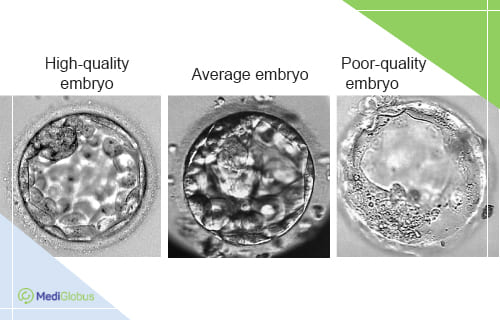
In advanced reproductive medicine centres that have high IVF success rates, embryo implantation is carried out under ultrasound monitoring. This has been proven to increase the success of infertility treatment.
How does the IVF protocol affect the effectiveness of fertility treatment?
Choosing the right IVF protocol is a very important part of fertility treatment. Women with different fertility statuses will need different medications taken at different times to obtain a sufficient number of good-quality eggs. Otherwise, they will turn out to be immature or overmature, which will harm the quality of the embryo.
When an IVF protocol is chosen, the fertility doctor prescribes a series of hormonal tests to determine how the body will respond to ovarian stimulation – well, medium or weakly.
The long IVF protocol is best for most patients. It is the most balanced and has a good rate of a successful pregnancy. However, women with reduced ovarian reserve or poor response to hormonal stimulation will get better results with a short protocol or a protocol with antagonists.
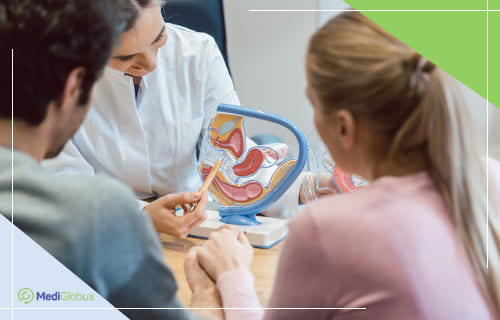
MAKE AN APPOINTMENT WITH A FERTILITY DOCTOR
For help with fertility problems, you can contact experienced foreign centres. Please leave a request on our website by clicking the button below and we will help you find a clinic and organise your treatment.
What other factors influence the effectiveness of IVF?
Women with a body mass index (BMI) between 18.5 and 24.9 have a better chance of successful IVF.
Reproductive history: if the woman has already had unsuccessful pregnancies or miscarriages, the prognosis is less favourable.
The number of previous IVF attempts. Although some couples manage to get pregnant on their first attempt, most patients require about 6 cycles to reach their goal.
A history of more than two abortions usually harms fertility prognosis.
Unhealthy habits such as smoking and alcohol may reduce the chances of a successful pregnancy. And this applies to both partners because the quality of sperm also depends on the man’s lifestyle. In contrast, some diets and supplements that a reproductive therapist may recommend can increase the fertility of the mother-to-be.
Where to go for IVF?
Summary
The effectiveness of IVF depends on many factors, some of which can be influenced while others can only be adapted to. The most important influences on the outcome of the treatment are the age of the mother, her egg reserve, the diagnosed cause of infertility and the quality of the embryo.
Favourable factors for IVF treatment include age under 35, no history of abortions or miscarriages, a healthy lifestyle and body mass index, high ovarian reserve and good embryo quality.
Unfavourable factors for IVF treatment include age over 42, infertility associated with a male factor or fallopian tube disease, endometriosis, unhealthy habits and poor embryo quality.
An experienced reproductive specialist can find an individual approach for every couple and help to compensate for unfavourable factors to achieve the desired pregnancy.
Sign up for IVF treatment
To get help for your fertility problems, you can contact experienced foreign fertility centres. Leave a request on our website by clicking on the button below and we will help you find a clinic and organise your treatment.
Sources:
- 1. International journal of Fertility and SterilityL Factors Associated with In Vitro Fertilization Live Birth Outcome: A Comparison of Different Classification Methods
- 2. American Journal of Reproductive Immunology: Efficacy of intracytoplasmic sperm injection (ICSI) treatment in the immunological infertile patients
- 3. Annals of the Translational Medicine: Comparison of different stimulation protocols used in in vitro fertilization: a review




